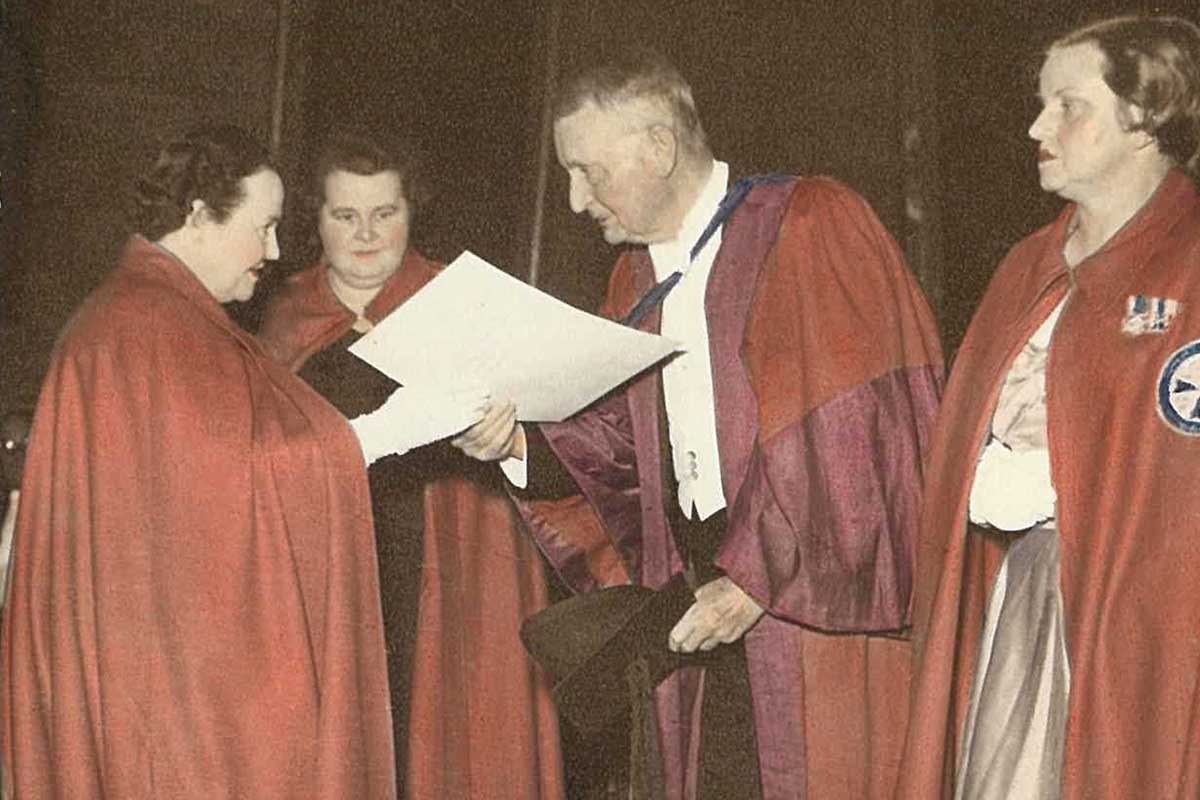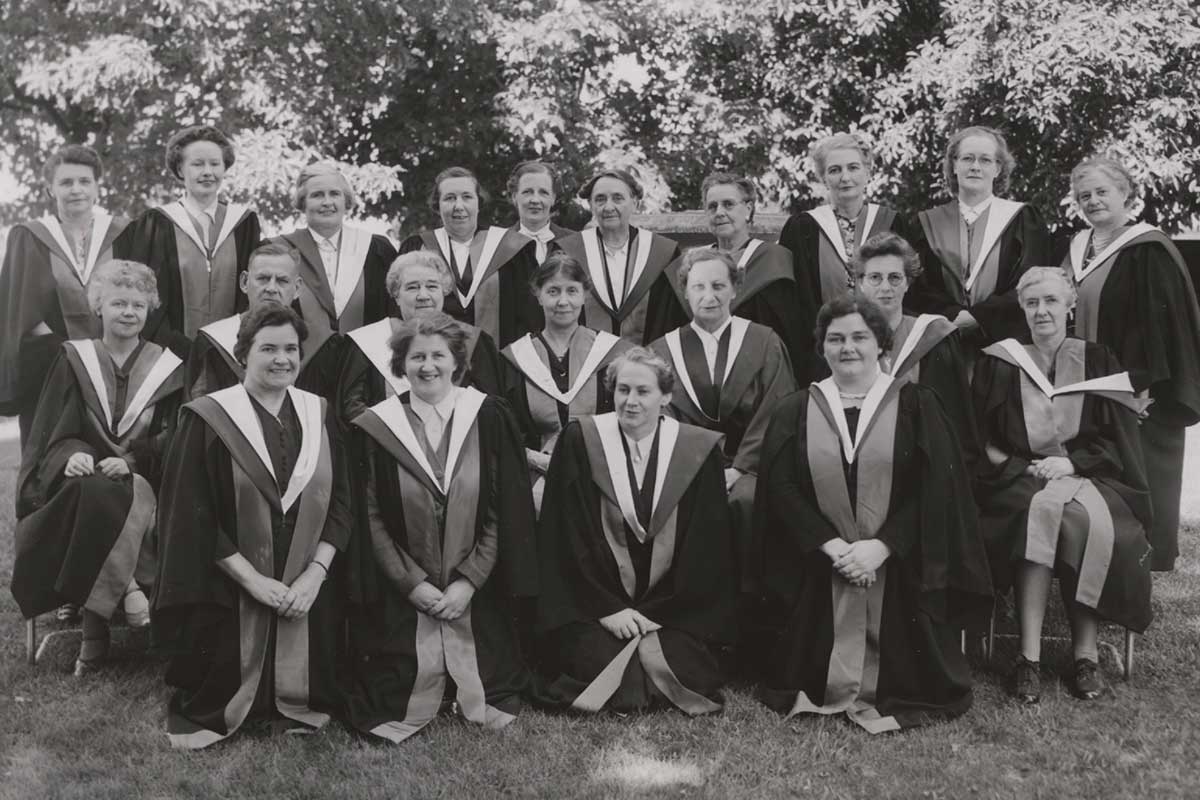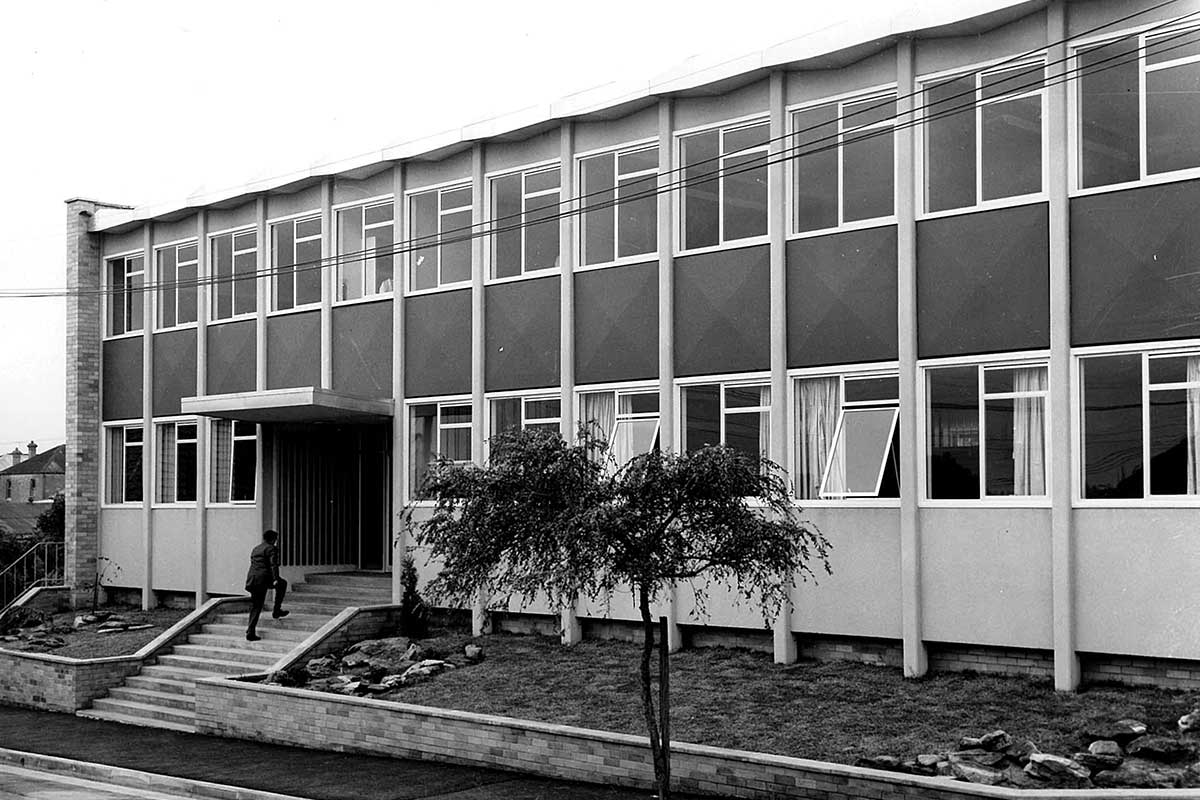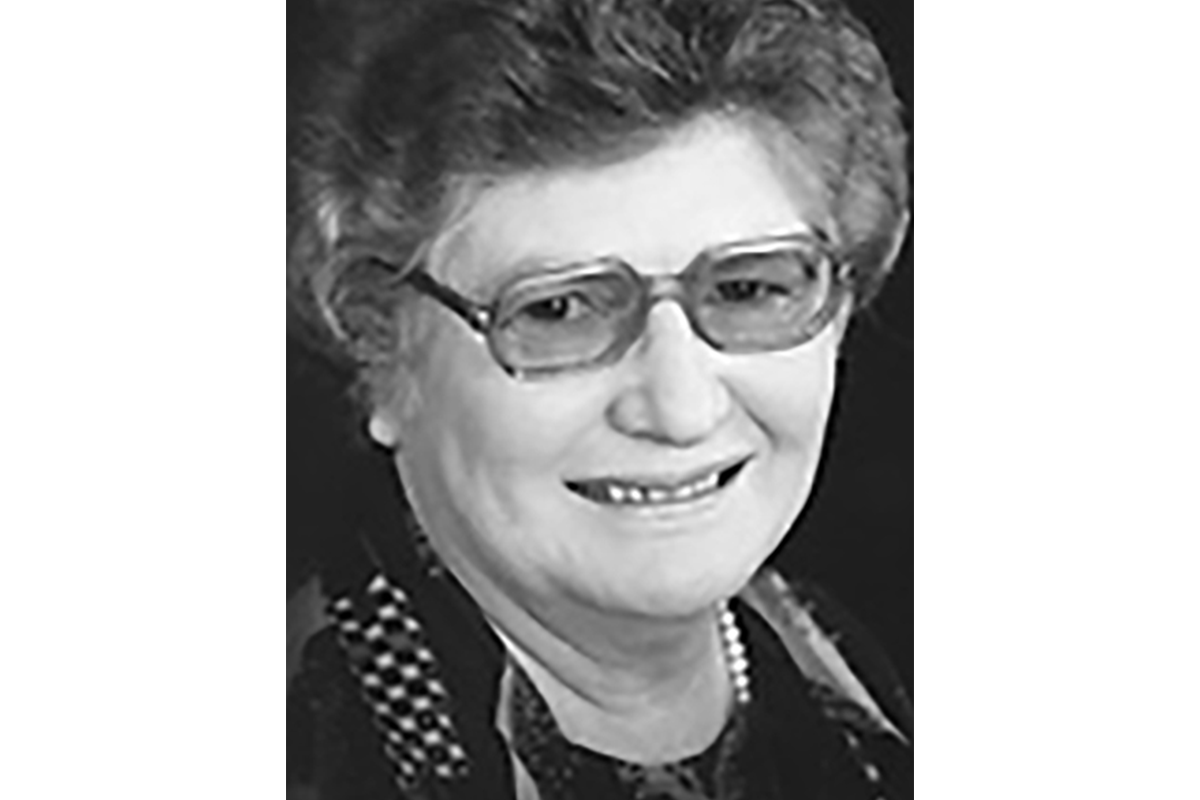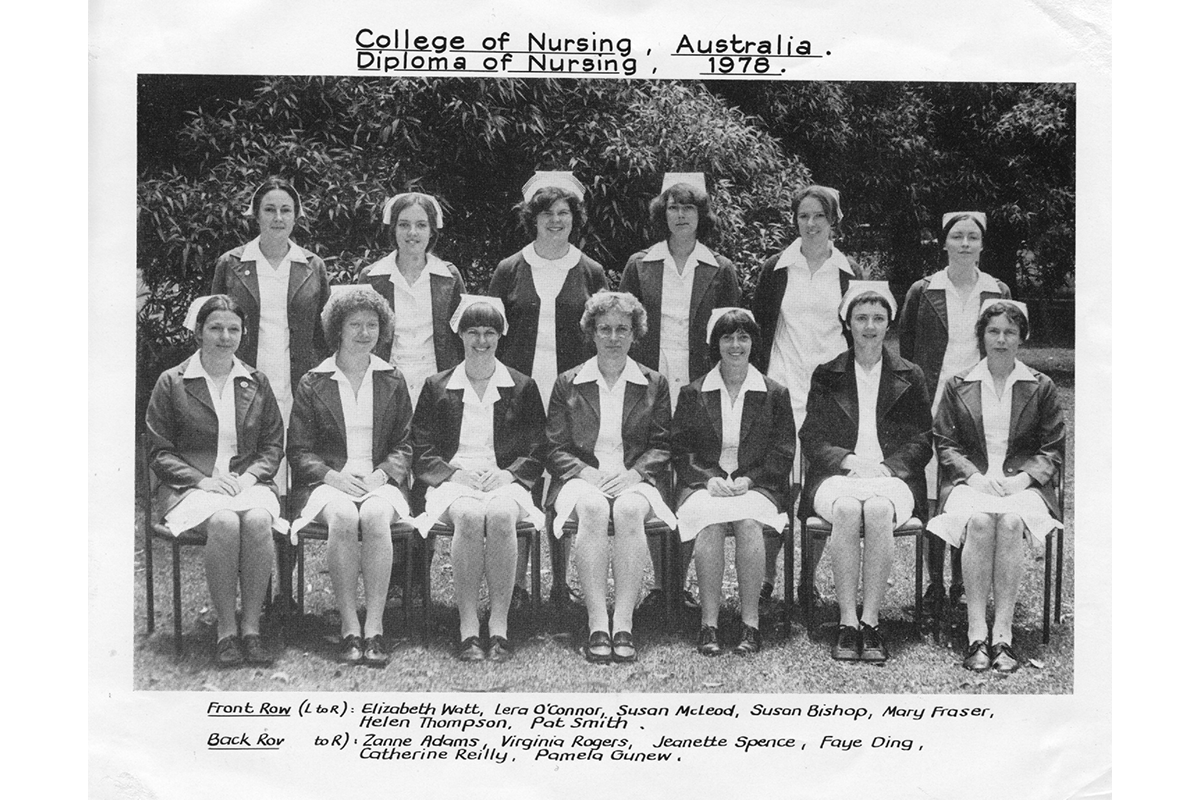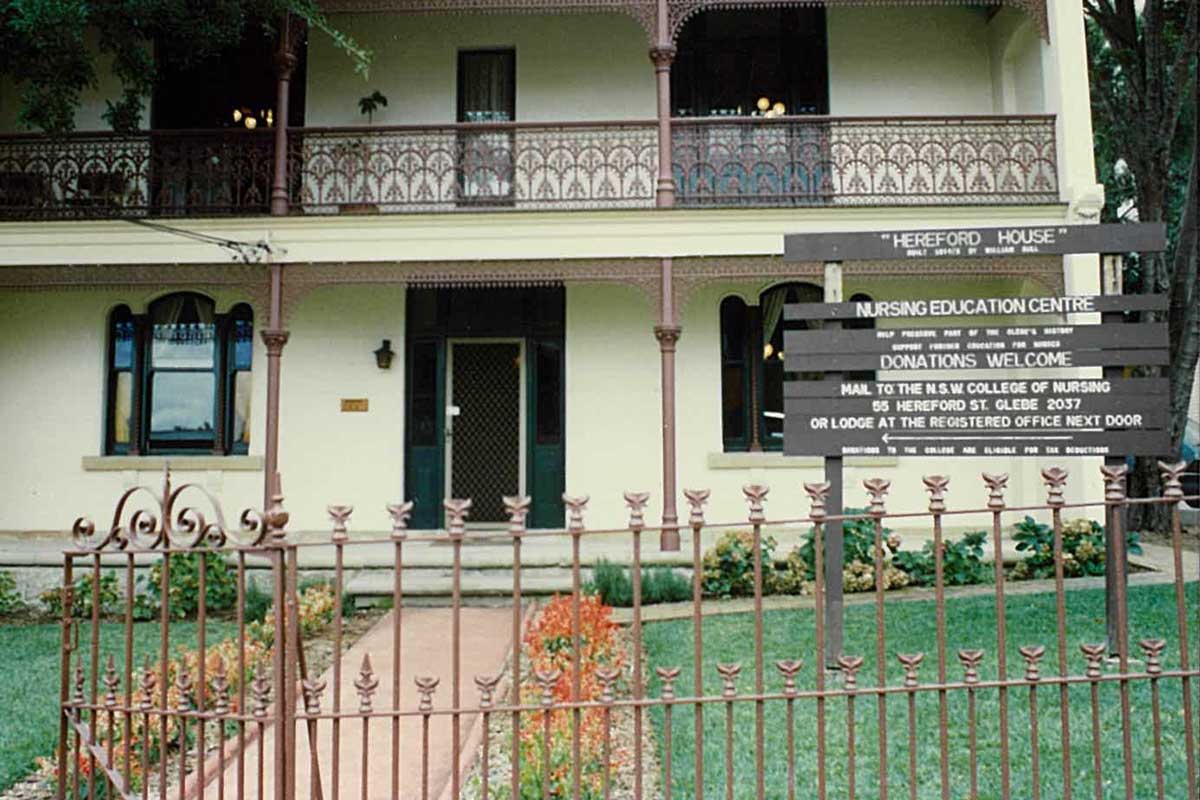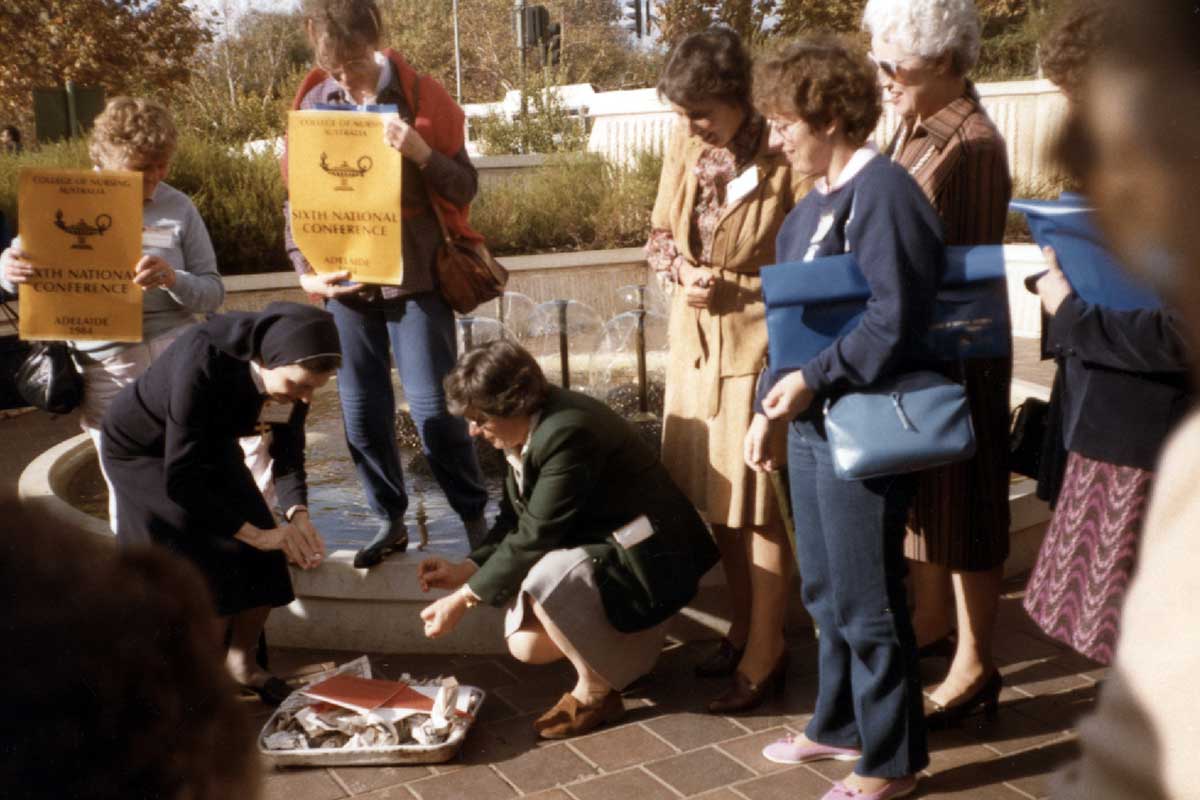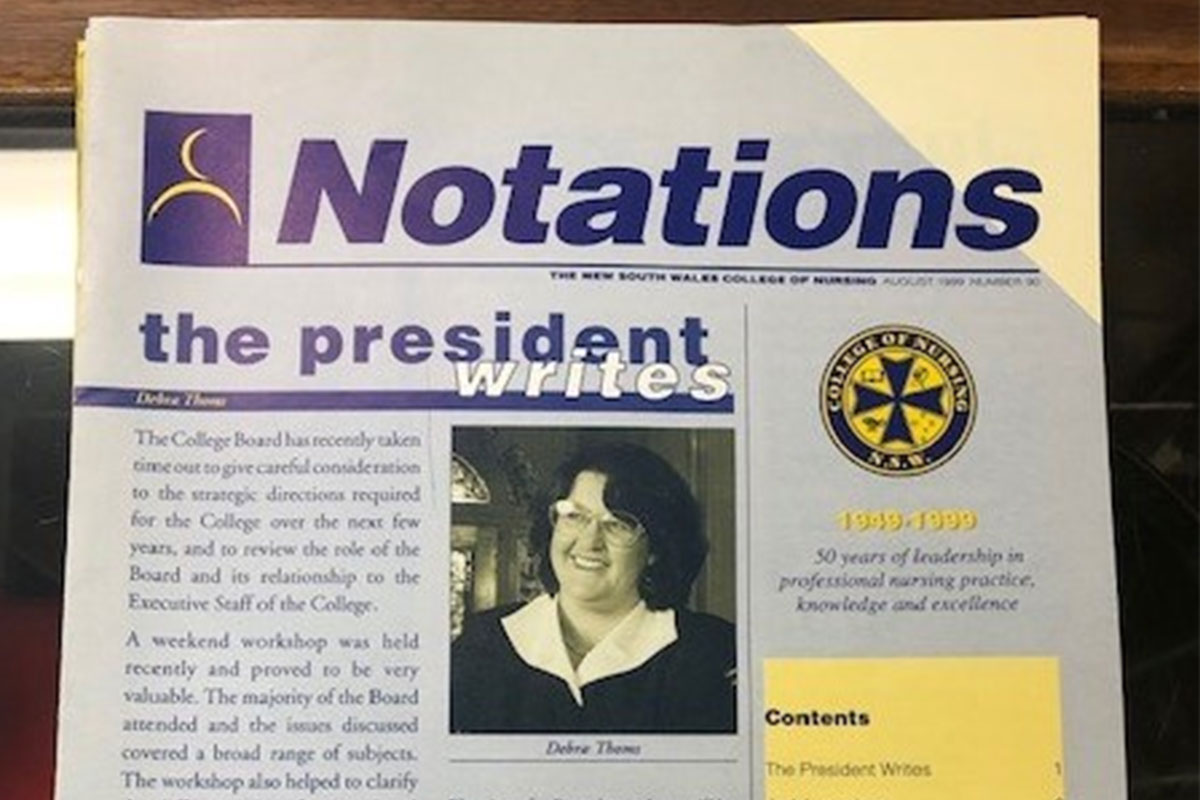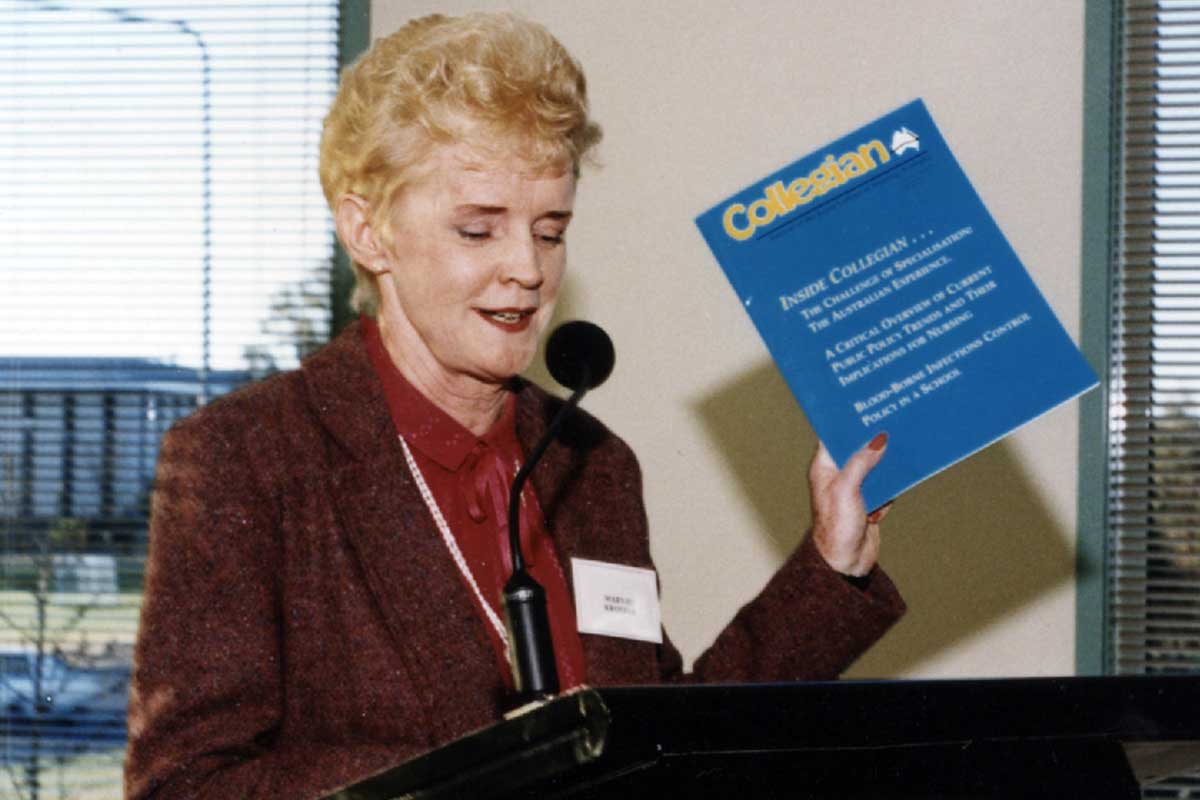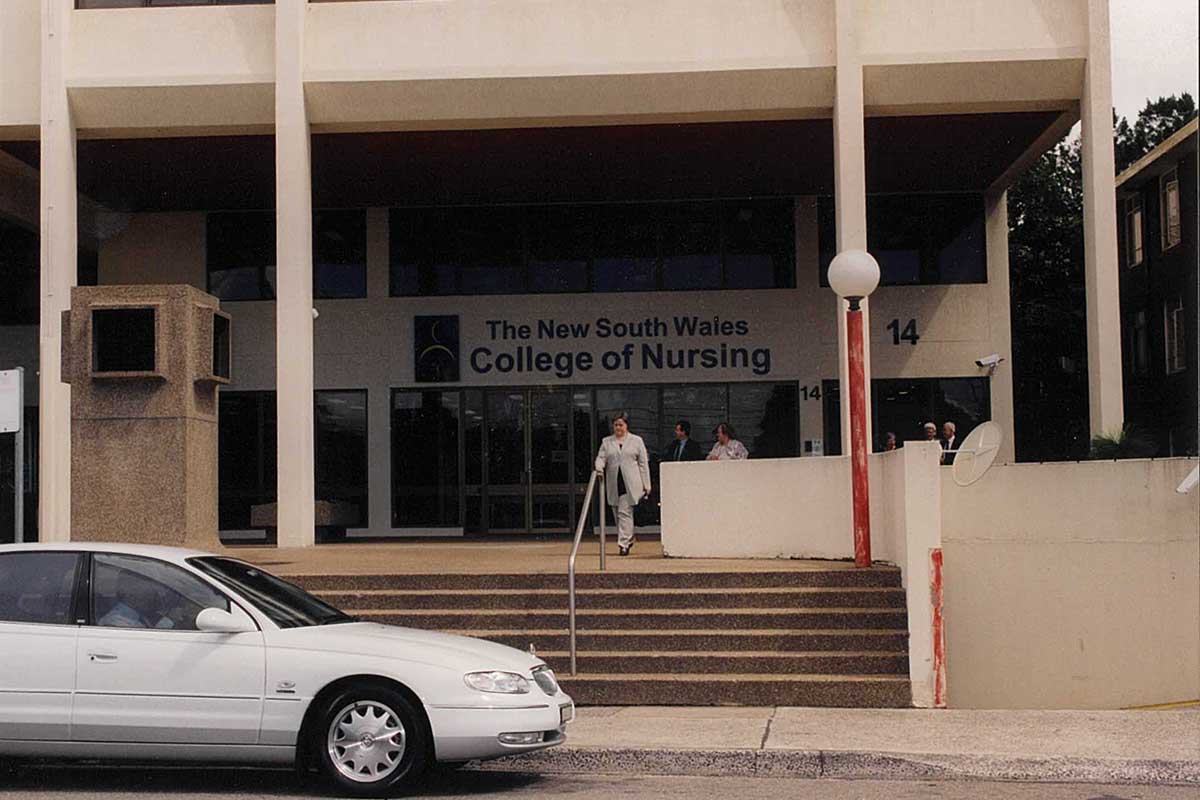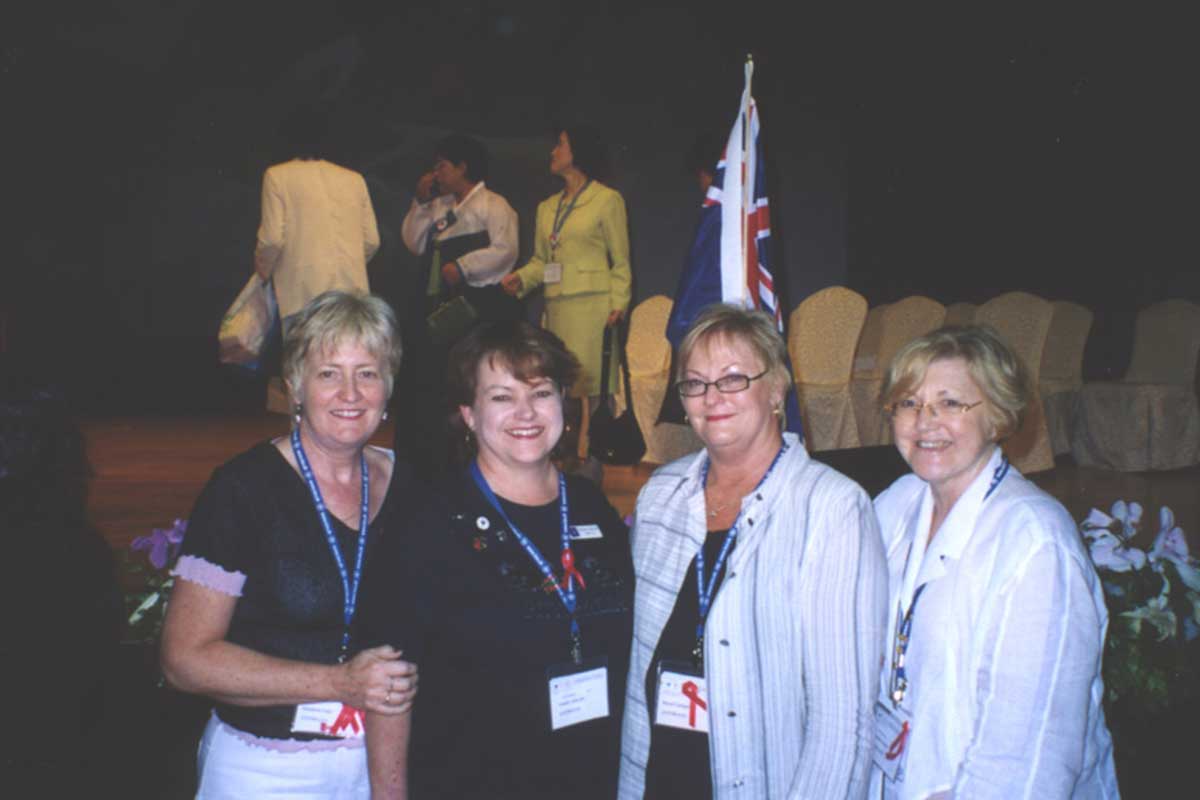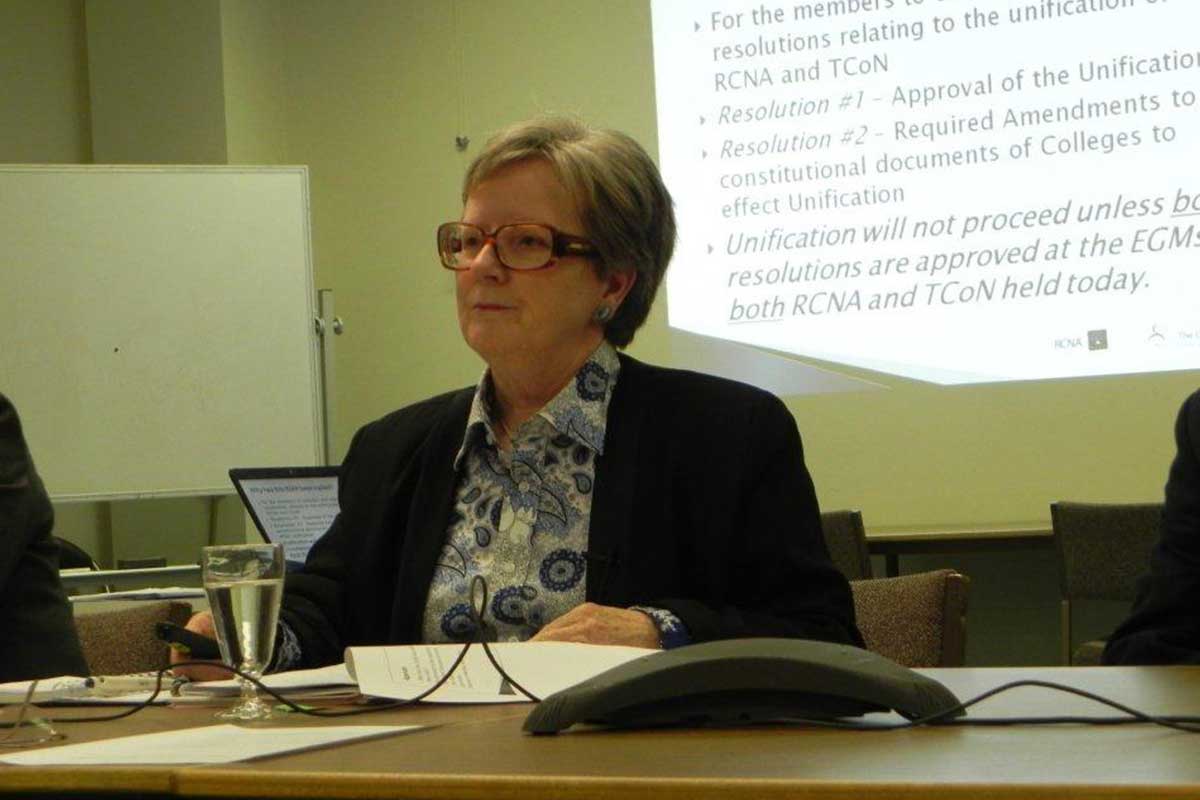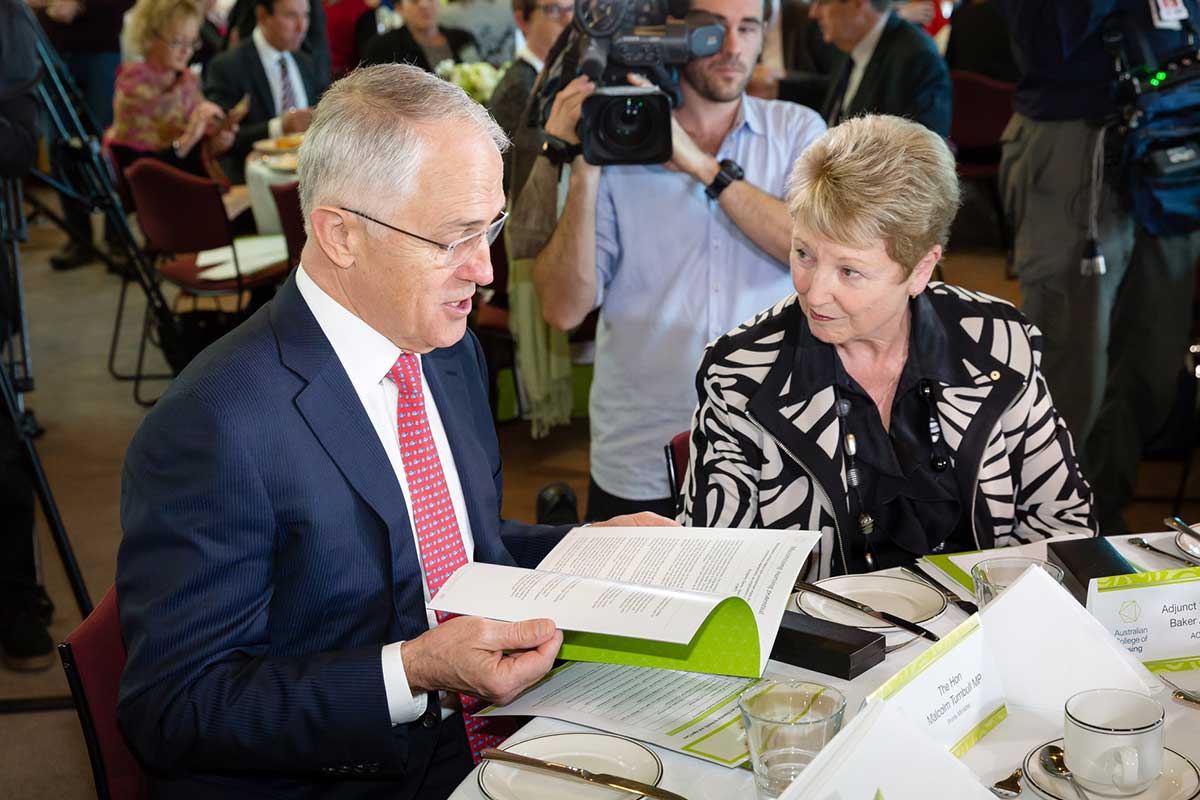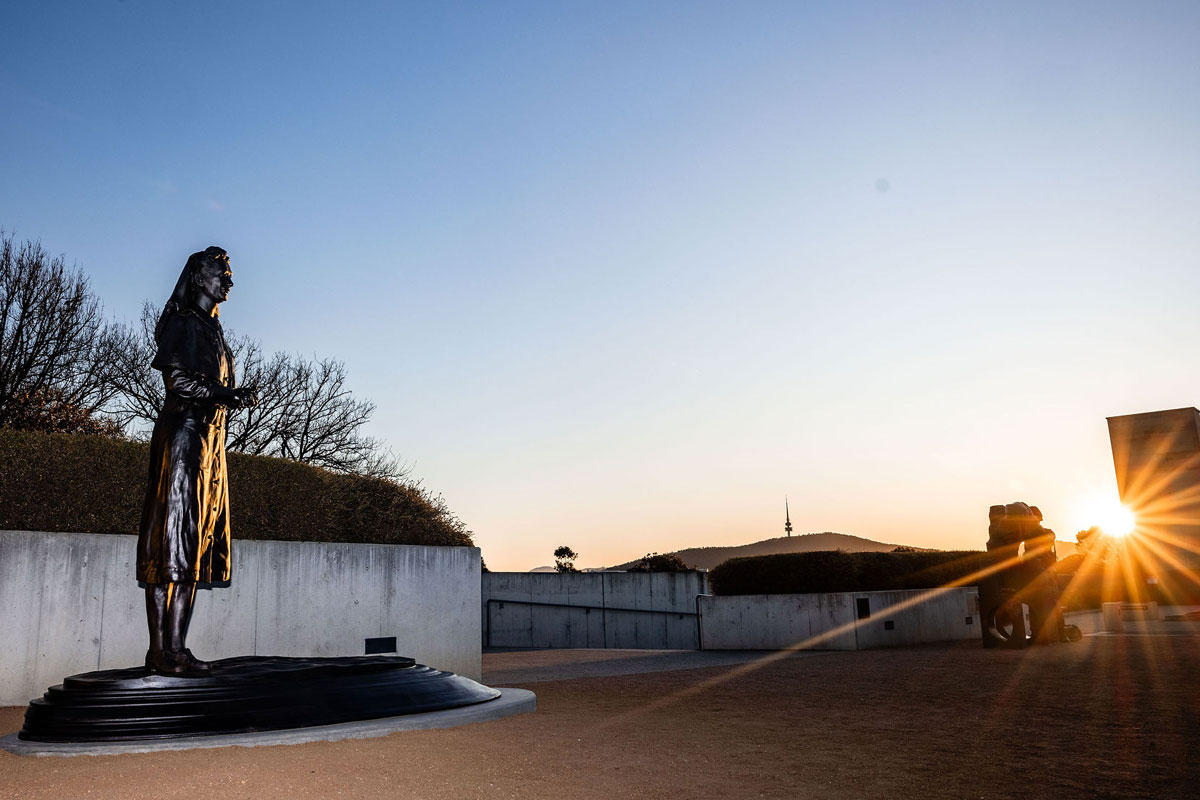On this page: 1949 – 1959 | 1960 – 1969 | 1970 – 1979 | 1980 – 1989 | 1990 – 1999 | 2000 – 2009 | 2010 – 2012 | 2012 – 2021 | 2022 – Present
75 years of nursing leadership – Celebrating our milestones
Explore the rich history of the Australian College of Nursing (ACN) and its pioneering predecessor organisations: The College of Nursing, Australia (TCoN), and the Royal College of Nursing, Australia (RCNA).
Each milestone across the decades showcases the unwavering dedication and groundbreaking innovation of nurses committed to advancing nursing education and elevating the profession’s status. Their visionary commitment to nursing excellence has laid the foundation for ACN to become the peak professional body and leader of the nursing profession in Australia.
Uncover the stories of resilience and innovation that have defined our journey and get ready to be inspired by the significant contributions of the trailblazing nurse leaders who have come before us.
1949 – 1959
The College of Nursing, Australia
(formerly the NSW College of Nursing)
Image: First investiture of Fellows in 1952
January 1949
On 5 January 1949, a mass meeting of NSW nurses, convened in response to the National Health Services Bill, leads to the formation of the NSW College of Nursing (NSWCN).
June 1950
Starting in 1949, the NSWCN begins offering courses, notably introducing the Operating Theatre Technique and Management course in 1950, a year that also celebrated the first graduation ceremony.
September 1952
Two classes of members are established: Foundation Fellows / Fellows and Ordinary Members. The first investiture of 57 Foundation Fellows is held at the University of Sydney on 18 September 1952.
The Royal College of Nursing, Australia
(formerly the College of Nursing Australia)
Image: Some of the original fellows and members of the first Council of the College of Nursing, Australia in 1950
March 1949
The Provisional Council convenes and establishes the College of Nursing Australia (CNA) on 23 March 1949.
February 1950
The inaugural Australian Nursing Conference, a collaborative effort by the CNA, the Australian Nursing Federation, the National Florence Nightingale Memorial Committee and the Australian United Nurses’ Association, takes place in Melbourne from 18-28 February.
February 1950
The War Nurses Memorial Centre (known as the Nurses Memorial Centre after 1951) is established in February 1950 in honour of the 71 nurses who lost their lives during the Second World War. The centre becomes the first home of the CNA.
1960 – 1969
The College of Nursing, Australia
(formerly the NSW College of Nursing)
Image: Purpose-built facilities at 58 Allen Street, Glebe
June 1962
A purpose-built facility for the NSWCN on the corner of Allen St and Cotter Rd, Glebe, is opened on 22 June 1962 by the NSW Minister for Health, The Hon, W.F. Sheahan.
June 1966
In 1966 Commonwealth Scholarships, until then only available to tertiary students, become available to students at the NSWCN.
The Royal College of Nursing, Australia
(formerly the College of Nursing Australia)
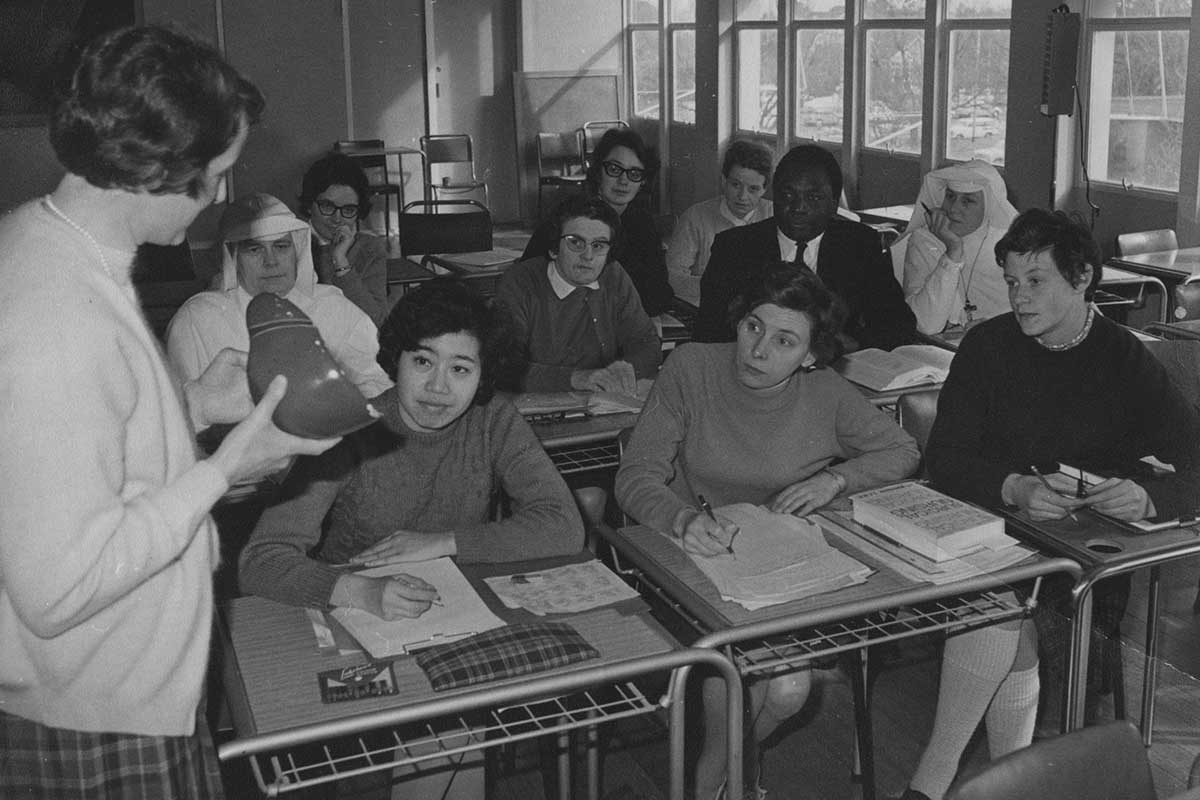
Image: Nurse Educator Marjorie Hodgson and her students in a crowded classroom in 1968
November 1964
A proposal is put forward to federate the two Colleges, but this was eventually rejected. It would take another 48 years for the Colleges to formally unite.
September 1969
The Clive Steele Memorial Nursing Library is established on 4 September 1969, thanks to a generous bequest from Major-General Sir Clive Steele, further enhanced by contributions from various organisations. At its founding, it is acclaimed as Australia’s premier nursing library.
1970 – 1979
The College of Nursing, Australia
(formerly the NSW College of Nursing)
Image: Olive Anstey CBE MBE, the College’s first honorary secretary
1973
At the end of 1973, the NSW College of Nursing Research Group was formed by graduates of the College. Its objectives included undertaking and promoting research in nursing, and publication of the results, and acting as an advisory body.
June 1977
The College’s first honorary secretary, Miss Olive Anstey CBE MBE, is elected President of the International Council of Nurses.
The Royal College of Nursing, Australia
(formerly the College of Nursing Australia)
Image: Group of Diploma of Nursing students in 1978
July 1971
The CNA becomes formally affiliated with the Victorian Institute of Colleges, giving the College substantial further funding from the Commonwealth and Victorian governments.
May 1975
The CNA participates in a collaborative working party, featuring key nursing organisations, to publish “Goals in Nursing Education: Part 1,” outlining objectives for advancing nurse education, especially the transition of basic training to the higher education sector.
1980 – 1989
The College of Nursing, Australia
(formerly the NSW College of Nursing)
Image: Expanding the facilities – Hereford House, Glebe
June 1981
In June 1981, the NSWCN expands with the purchase of a heritage building, Hereford House in Glebe, to provide additional facilities. It is next door to Kerribee House, which had been purchased in 1974.
November 1983
The November 1983 College News headline, ‘History in the Making,’ highlights the momentous announcement by NSW Health Minister, the Hon. Laurie Brereton: the shift of basic nurse education from hospitals to colleges of advanced education starting 1 January 1985.
The Royal College of Nursing, Australia
(formerly the College of Nursing Australia)
Image: Members protest by burning the Sax Report, opposing its stance against moving nursing education from hospitals, in 1984
May 1984
On 10 May 1984, the Commonwealth Tertiary Education Commission’s report backs the Sax Report, opposing a full shift of nursing education from hospitals. In protest, CNA members march to the office of the Federal Minister for Health and symbolically set fire to a copy.
February 1989
On 21 February 1989, Her Majesty Queen Elizabeth II grants the honour of the prefix ‘Royal’ to the College of Nursing. The official name change to the Royal College of Nursing, Australia (RCNA) is registered on 13 July 1989.
1990 – 1999
The College of Nursing, Australia
(formerly the NSW College of Nursing)
Image: The late 1990s sees the College modernise its image with new logos and a refresh of Notations. This issue celebrates its 50th anniversary.
1997
The NSWCN introduces a website and homepage to further improve communication with the membership.
1999
In the late 1990’s the NSWCN upgrades its newsletter, Notations, and introduced a new image and logo. In 1999 it celebrates its 50th Anniversary with a party at Kerribee House.
The Royal College of Nursing, Australia
(formerly the College of Nursing Australia)
Image: Mary Jo Kroeber, FRCNA, RCNA President , launching ‘Collegian’; the Journal of the Royal College of Nursing, Australia in 1994
September 1994
The RCNA relocates, to reflect its increasing national focus, to Deakin, in Canberra. The new office is opened on 21 September by Minister for Human Services and Health, Dr Carmen Lawrence with over 125 guests in attendance.
September 1994
In September 1994, RCNA launches its academic journal, Collegian, marking a significant milestone. It represented a new era of growth, recommitment to foundational goals, and a platform dedicated to the professional interests of nurses.
November 1996
The Commonwealth government approves RCNA’s proposal to establish a national memorial to nurses who had served in wars and conflicts over the past 100 years. A site is dedicated on Anzac Parade in Canberra, near the National War Memorial, on 15 February 1997.
2000 – 2009
The College of Nursing, Australia
(formerly the NSW College of Nursing)
Image: The NSW College of Nursing, Burwood offices
January 2001
By 1997, the NSWCN has outgrown Hereford St and Booth St. After much discussion, the College moves to a new corporate-style headquarters in Burwood in January 2001.
November 2003
On 5 November 2003, the NSWCN expands its horizons to become a national entity, rebranding as The College of Nursing (TCoN). This transformation establishes the College as a professional body dedicated to representing, assisting, educating, and supporting nurses across the country.
The Royal College of Nursing, Australia
(formerly the College of Nursing Australia)
Image: Elizabeth Foley FRCNA, Natalie Ashcroft FRCNA, Karen Linegar FRCNA (RCNA President) and Coralie Gerrard FRCNA at the ICN Congress in Taiwan in 2005
February 2000
RCNA launches its hardcopy magazine, Connections, serving as the dynamic voice for its faculties, networks, chapters, and members, while profiling and promoting the diverse achievements of nurses nationwide.
May 2002
RCNA starts administering the Puggy Hunter Memorial Scholarship Scheme, offering crucial financial support to Aboriginal and/or Torres Strait Islander individuals pursuing entry-level health courses, aiming to foster diversity in healthcare professions.
2010 – 2012
May 2011
The National Nurses Breakfast is established, inspiring healthcare organisations across Australia to celebrate nurses and their significant contributions to societal health on International Nurses Day by hosting workplace breakfasts.
November 2011
In a historic vote, RCNA members choose to unify with TCoN, marking a significant moment of collaboration. This decision reflects a commitment to enhance nursing education and advocacy, ushering in a unified future for the profession.
2012 – 2021
July 2012
In 2012, after years of vision and effort, The Royal College of Nursing, Australia, and The College of Nursing came together to form the Australian College of Nursing (ACN). This crucial unification promises enhanced collaboration and elevates national nursing standards, strengthening the profession’s collective voice and impact.
May 2013
ACN, in collaboration with the Australian Nursing and Midwifery Federation, hosts the 25th ICN Quadrennial Congress in Melbourne, showcasing Australian nursing expertise and uniting colleagues globally in a vibrant exchange of knowledge and camaraderie.
October 2013
ACN is accredited with the Tertiary Education Quality and Standards Agency (TEQSA) as an educational institute, affirming its commitment to the highest standards of nursing education and professional development in Australia.
ACN’s first National Nursing Forum is held in Canberra from 20-22 October, bringing together nurses from across the country in an unparalleled event dedicated to networking, learning, and advancing the profession.
October 2016
ACN holds a Parliamentary Breakfast, attended by Prime Minister The Hon Malcolm Turnbull and other high-profile dignitaries, for the launch of its first White Paper Nurses are Essential in Health and Aged Care Reform.
April 2017
ACN convenes its inaugural National Policy Summit, providing Policy Fellows and distinguished guests with the opportunity to engage in in-depth discussions about ACN’s policy strategy and broader issues impacting nursing and health care.
January 2021
ACN, in partnership with the Australian Government Department of Health, launches the COVID-19 Vaccine Training Program, enabling over 200,000 nurses to upskill for vaccination administration.
June 2021
ACN establishes the Parliamentary Friends of Nursing, a forum where parliamentarians discuss challenges in nursing and explore how the profession can address challenges in Australia’s healthcare system.
2022 – Present
August 2023
The unveiling of the sculpture of the sole survivor of the Bangka Island massacre, Lieutenant Colonel Vivian Bullwinkel, marks a historic first: the inaugural sculpture dedicated to an individual nurse and woman within the grounds of the Australian War Memorial.
February 2024
The first Bullwinkel Scholarships are awarded at Duntroon House in honour of Lieutenant Colonel Vivian Bullwinkel and the 21 nurses who tragically lost their lives during the 1942 Bangka Island massacre.
Proudly preserving nursing’s heritage
Follow in the footsteps of extraordinary nurse leaders who have been championing for the profession for over 70 years and help us shape the future of nursing. Become an ACN member today to connect with like-minded nurses, progress your nursing career and make your voice heard.


